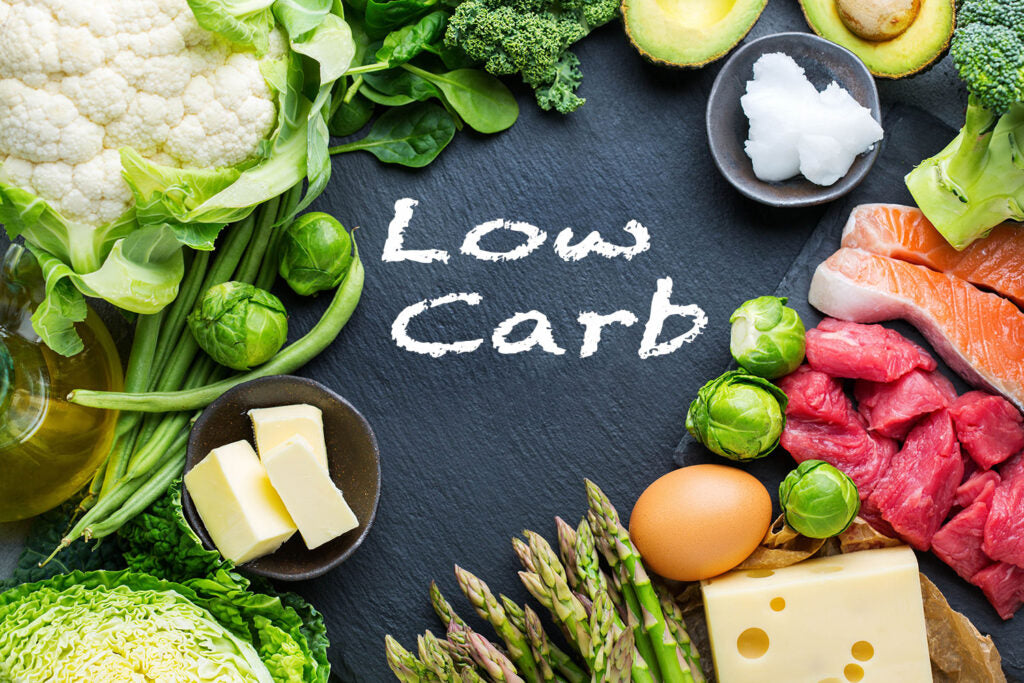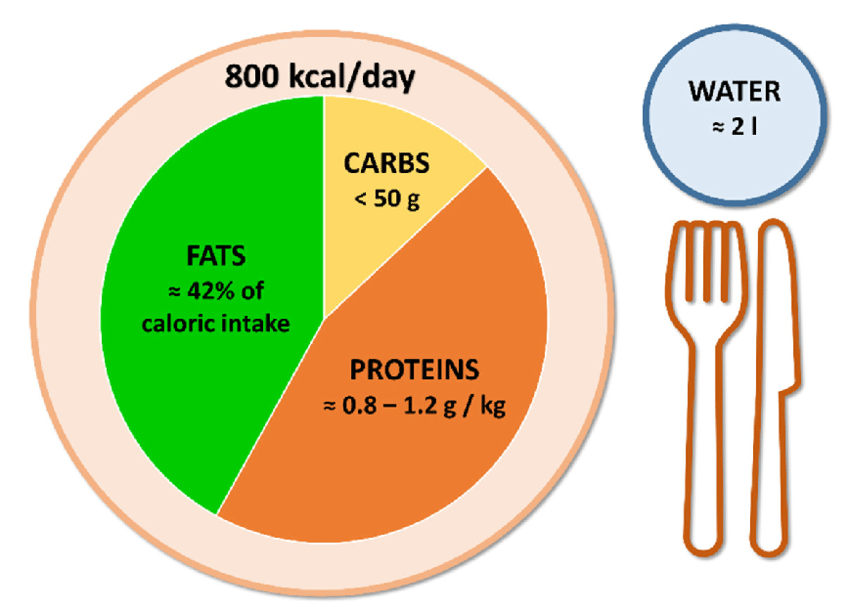
Low Carbohydrate Diets
Low-carbohydrate diets are more common when dealing with weight loss, they are much more widely known and can be a lot easier to implement than a reduction in calories. The concept being that the exchange of starchy carbohydrates for protein or fresh vegetables, limits the amount of glucose the body can create and so reducing calories. Replacing the carbohydrates with medium protein, high-fat foods such as meat, eggs, and cheese is usual practice but this can be alternated between fruits and vegetables, especially berries and nuts which will contain the fibre and sugar the body will be lacking for energy.
The low-carbohydrate diet can bring about a ketogenic state or Ketosis, where the low glucose in the blood caused by the exhaustion of carbohydrate stores, creating ketone's which are the result of fatty acid break down. Resulting in the body using both fat and muscle for energy.
The term "low-carbohydrate" is applied to a diet when the intake of carbohydrates for the day drops below an average of 20% their calorie intake. Though this definition is often extended to any diet that has a significant reduction of carbohydrates.
Besides the purposes of weight loss the low-carbohydrate diet can also be implemented for a number of medical reasons, the reduction of carbohydrates can prevent and even treat chronic diseases; Diabetes, high blood pressure, even studies into epilepsy have proven beneficial.
A History...
Since the dawn of agriculture, our average daily consumption of carbohydrates has risen, it has even been debated by supporters that the human body has always had a low-carbohydrate diet with the increase only occurring over recent years. Though this historical debate focuses around Palaeolithic Age, an age when we used stone tools and Man's set in the role of hunter and gather for the family. The debate goes beyond that and carries the belief that the Male would primarily bring back meats (Protein). Experts however, researchers in Primate evolution or Primatologist's, argue that this does not take into account the Females role, which would have primarily been to collect berries, fruits and other edible plant life.
Since the 19th century a low-carbohydrate diet has been the standard solution for diabetic patients and by 1863 was established officially as a diet by William Banting, who described in a published letter to the public how weight loss and control could be done through giving up butter, milk, sugar, beer, potatoes and bread. In 1888 James Salisbury (introducer of the Salisbury Steak) brought on the concept of High Protein equivalents to starches, fruit and vegetables.
What we know today...
The idea has been adapted and altered over time to incorporate a more modern way of living and many diet plans have been created around it, more notably;
- The Atkins Diet
- The Dukan Diet
- The South Beach Diet
- The Stillman Diet
Diets that we now associate with the term "Low-carbohydrate" which have implemented the base fundamentals into their regimes and the research into low-carbohydrate diets has increased dramatically since the 1990's, focusing on the connection between carbohydrates and blood sugar level. The advocates of the diets debating that the reduction of carbohydrates provides greater benefits to that of any other plan, however Nutritionists and Doctors have pointed out that it also contains greater risk to the body if not managed correctly.


